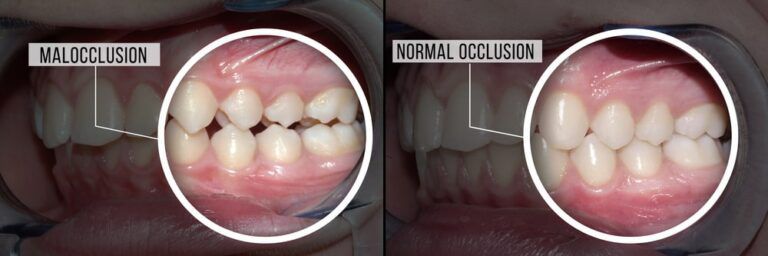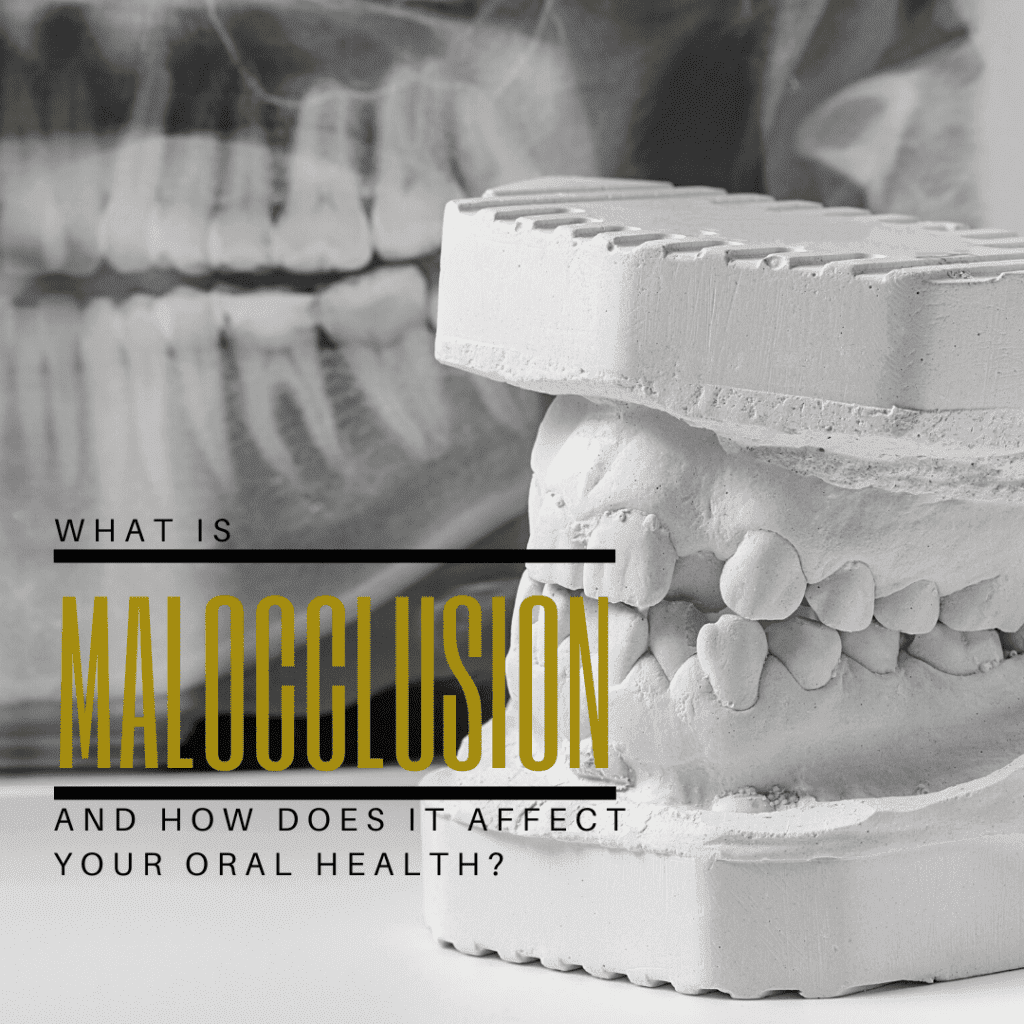Are you unhappy with the look of your smile, despite the fact that your teeth are generally bright and free from damage? Do you feel like something is just not quite right? You may be suffering from malocclusion, a condition that affects the alignment of your teeth and how the upper teeth meet up with the lower teeth. Believe it or not, this condition is enough to affect the entire look of your smile. In this blog post, we will define malocclusion and discuss how it can affect your oral health.
What is malocclusion?
Malocclusion is a common problem, and it can take many different forms. In general, there are three types of malocclusion: underbite, overbite, and crossbite. Let’s take a closer look at each type:
Underbite
Underbite occurs when the lower teeth extend out further than the upper teeth. This gives a “bulldog” appearance to your smile. Underbite is considered one of the more severe forms of malocclusion because it can lead to significant decay, eating and chewing difficulties, mouth breathing, speech issues, and sleep apnea. In addition, underbite can also lead to gum disease and TMJ problems.

Overbite
Overbite is the exact opposite of an underbite; it occurs when the upper teeth extend out further than the lower teeth. This can give a “horse-like” appearance to your smile. Overbite is also a serious form of malocclusion because it can lead to sensitivity and decay on the upper front teeth due to their extended length (as they are not being covered by any other teeth). In addition, overbite can cause TMJ problems.
Crossbite
Crossbite occurs when both the upper and lower jaws shift too far in one direction or another. This causes the teeth to meet at an abnormal angle, and it can cause significant damage because of this. Crossbite is not as severe as overbite or underbite, but it still needs attention from Smile Drs. In addition, crossbites often lead to TMJ problems.
These types of malocclusion are diagnosed by their type and severity. The diagnostic classification of malocclusion is as follows:
- Class 1: This is the most common class of malocclusion and it occurs when the upper and lower molars line up, but the other teeth are too close or too far from one another.
- Class II: Classified by a severe overbite that causes the upper teeth to drastically overlap the lower teeth, possibly due to a small lower jaw.
- Class III: Classified by a severe underbite that causes the lower teeth to overlap the upper teeth, possibly due to a large lower jaw.
How does malocclusion affect oral health?
Now that we have a better understanding of what malocclusion is, let’s discuss how it can affect your oral health. As we stated before, malocclusion can take on different forms, and each form can cause its own set of problems. In general, however, malocclusion can lead to:
- Sensitivity on the teeth caused by enamel wear due to their abnormal alignment
- Decay on the teeth due to damaged and/or worn enamel, as well as bacterial accumulations on overlapping teeth
- Gum disease, as bacteria can easily accumulate in the crevices between teeth that are not properly aligned
- TMJ problems due to increased jaw stress, which can cause pain in the jaw, headaches, and other issues
Correcting Malocclusion
Luckily, there are different ways for your dentist to correct malocclusion. Of course, one of the most common methods to correct malocclusion is orthodontic treatment using Invisalign clear aligners. However, the application of crowns or veneers can also be another option to correct mild cases of malocclusion. In some cases, orthodontic treatment using metal braces may also be recommended for more moderate cases. In severe cases, orthognathic surgery may be required to properly align the bite.
In Conclusion
Overall malocclusion is a very common problem, characterized by an improperly aligned bite, that can cause a variety of oral health problems. There are different types and classes of malocclusion, all of which can affect your oral health in specific ways. If you are not happy with your smile because of malocclusion, it is important to visit Smile Drs. for a diagnosis. We can help you understand your specific type and class of malocclusion, and determine the best course of action to help you maintain a healthy smile, while also having a smile you are proud to have.




